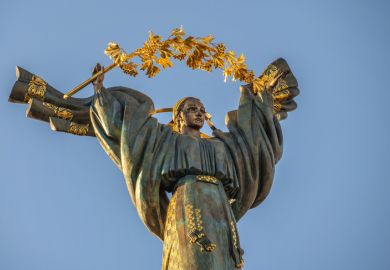In 1981, nine years before Nelson Mandela was finally released, the South African Minister of Justice, Kobie Coetsee, tentatively considered a conditional release for Robben Island's most famous prisoner and asked the Prisons Service for a detailed analysis of his personality.
Mandela, ran the report, was "exceptionally motivated", maintained "outstanding personal relations" and harboured no bitterness towards whites. He was "manipulative but not tactless or provocative". A pragmatic and practical thinker with a prodigious memory, he acknowledged his own shortcomings but had "an unflinching belief in his own cause" and was certain of eventual victory. He regarded himself "as called to the task".
Mandela, the report concluded, "commands all the qualities to be the number one black leader in South Africa". His imprisonment had increased his "psycho-political posture", imbuing him with charisma.
This profile, judged Anthony Sampson in his Mandela biography, was "remarkably accurate". Tom Lodge agrees, calling it "extremely perceptive". It is also strikingly similar to Lodge's own approach, which might fairly be called psycho-political biography. His subtitle, A Critical Life , may lead some to expect revisionist iconoclasm, debunking the Mandela myth and finding feet of clay. But this is not the book Lodge has written.
While it is certainly not hagiography or as affectionate as Sampson's mammoth authorised biography, Lodge's account is respectful and appreciative. It is more analytical and tightly argued than Sampson's and Martin Meredith's biographies; and whenever Lodge is less deferential and more sceptical, he provides the evidence for his dissent.
The narrative covers familiar ground - unavoidably so for a subject whose career and impact has already been so extensively surveyed. But at various points, Lodge persuasively tweaks existing analyses of Mandela's political role. For the 1952 Defiance Campaign, where Sampson claimed that the national organisation of the campaign was "Mandela's achievement", Lodge demonstrates that local leaders and initiatives were more important than national co-ordination. Mandela's role in briefing middle-echelon leaders around the country was important, but it did not include the mass recruitment and branch-building claimed by earlier biographers.
Similarly, Lodge is dismissive of the notion that Mandela was the sole or even main author of the 1953 "M Plan" - a new organisational structure for the African National Congress based on tight-knit cells and local blocs rather than mass mobilisation. And in his coverage of the ANC's anti-pass campaign and national stay-away of 1959 and 1960, Lodge dismantles versions of Mandela's "central directing role" in these events. Rather, his key role in the 1950s was that of a "public personality who animated enthusiasm".
But the originality of this study rests less on these details and more on Lodge's exploration of the source and nature of Mandela's political appeal: why and how he ascended the ladder of leadership. Mandela was successively township grandee, lawyer, volunteer-in-chief and black Pimpernel; he was accused number one, prisoner 466/64, the struggle personified; he was negotiator, head of state and international icon. The work is a chronicle of leadership that stretches for over half a century.
Lodge identifies important continuities along this extraordinary sequence.
He is excellent at portraying the young Mandela's inner resources of self-confidence and self-reliance and in showing how these expressed themselves in his steely charm, social grace and imposing presence. Lodge is intriguing on Mandela's politics as performance, "self-consciously planned, scripted to meet public expectations, or calculated to shift popular sentiment". He quotes Mandela, and some of his closest associates, to illustrate how deftly and deliberately Mandela's rhetoric and public persona were shaped and burnished.
Lodge also explores the making of the Mandela mythology and how this in turn suffused post-1994 political discourse in South Africa with messianic tropes and expectations. He visits some of the earlier literature on charismatic leadership in Africa, but also the more recent work of John Kane on "moral capital".
There were moments, argues Lodge, when Mandela's presidential leadership was more messianic than moral, but in general Mandela strengthened the institutional bases of democratic power rather than substituting his authority for organised politics. For Lodge, this is "probably his strongest achievement".
This handsomely produced volume is blemished by some slipshod proofreading, particularly in the captions to an over-familiar set of photographs, and the endnotes are peppered with errors. Lodge deserves better, having produced a thoughtful and discerning life of Mandela that will outlast much else that has been written on the topic.
Colin Bundy is the new warden of Green College, Oxford.
Mandela: A Critical Life
Author - Tom Lodge
Publisher - Oxford University Press
Pages - 4
Price - £14.99
ISBN - 0 19 280568 1
Register to continue
Why register?
- Registration is free and only takes a moment
- Once registered, you can read 3 articles a month
- Sign up for our newsletter
Subscribe
Or subscribe for unlimited access to:
- Unlimited access to news, views, insights & reviews
- Digital editions
- Digital access to THE’s university and college rankings analysis
Already registered or a current subscriber? Login



